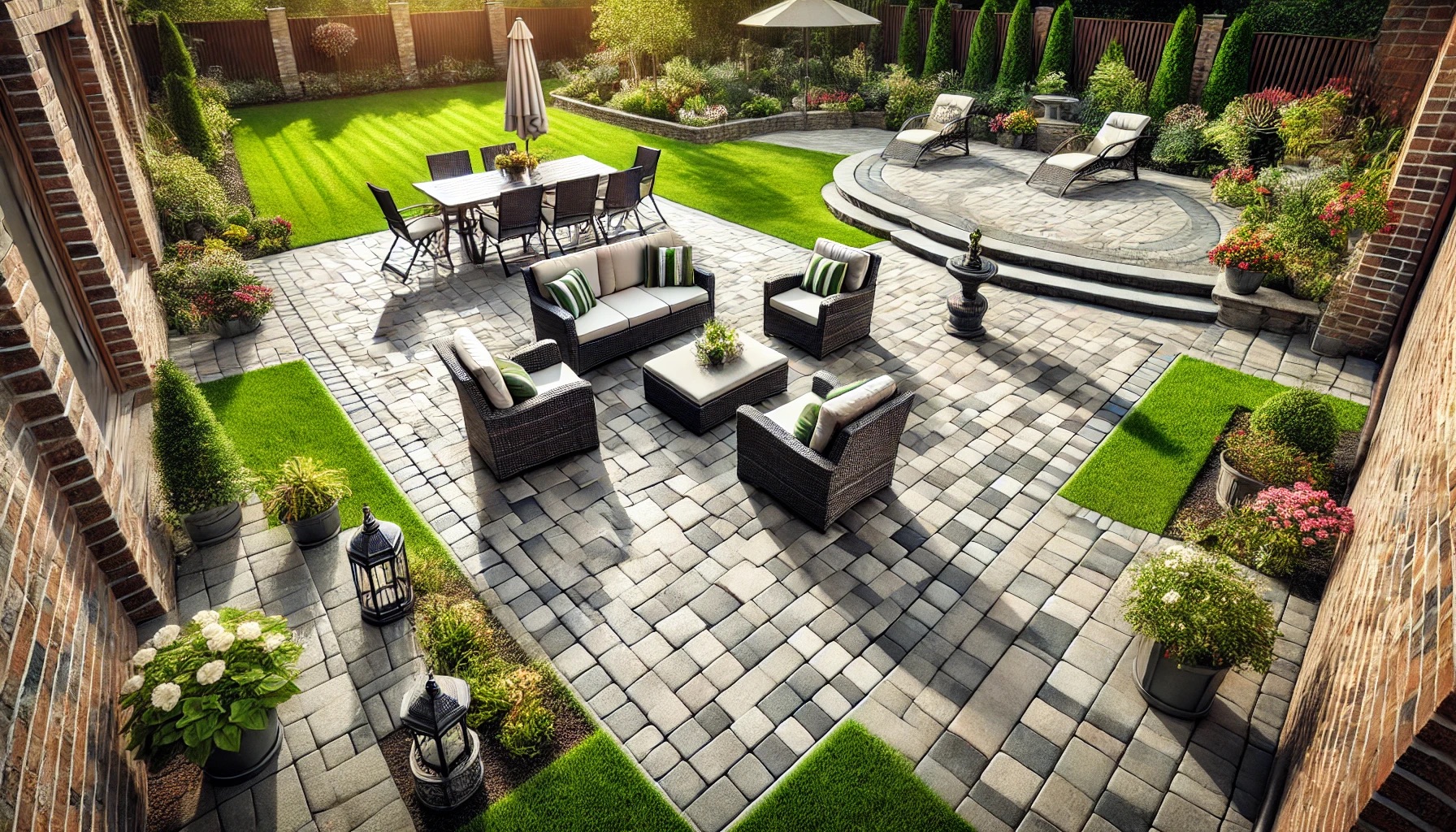Outdoor spaces are an extension of our homes, providing a sanctuary for relaxation and entertainment. In Tucson, AZ, where the climate encourages outdoor living, maintaining these spaces is crucial. Patio pavers, a popular choice for patios, driveways, and walkways, require regular upkeep to preserve their beauty and functionality. Patio pavers restoration in Tucson, AZ, can breathe new life into your outdoor area, ensuring it remains a welcoming environment for years to come.
Understanding Patio Pavers
Patio pavers come in various materials, including concrete, brick, and natural stone. Each type offers unique benefits and aesthetic qualities, making them versatile for different design preferences. However, despite their durability, pavers are susceptible to wear and tear over time. Common issues include cracking, shifting, and staining, which can detract from the overall appeal and safety of your patio.
Signs Your Patio Pavers Need Restoration
Identifying when your patio pavers need restoration is the first step in maintaining their integrity. Visible wear and tear, such as cracks and chips, indicate that the pavers are deteriorating. Weed growth and shifting pavers are signs that the joints have weakened, allowing unwanted plants to take root. Additionally, stains and discoloration from weather exposure, spills, and dirt accumulation can make your patio look unsightly.
Benefits of Restoring Patio Pavers
Restoring your patio pavers offers numerous benefits. A well-maintained patio enhances the aesthetic appeal of your home, creating a polished and inviting outdoor space. This improvement can also increase your property value, making it a worthwhile investment. Furthermore, addressing issues like uneven surfaces and loose pavers improves safety, reducing the risk of trips and falls.
Initial Assessment and Planning
Before embarking on a Tucson paver repair project, conduct a thorough assessment of your patio pavers. Inspect the current state of the pavers, noting any damages or areas of concern. Set a restoration budget that covers materials, labor, and any additional costs. Timing is also essential; choose a period with favorable weather conditions to ensure a smooth restoration process.
Cleaning and Preparing the Pavers
The first step in restoring patio pavers is cleaning and preparing them. Remove debris, leaves, and weeds from the surface and joints. Pressure washing is an effective method to clean the pavers, eliminating dirt and grime buildup. For stubborn stains, consider using specialized cleaning solutions to restore the original color and appearance of the pavers.
Repairing and Replacing Pavers
Address any structural issues by repairing or replacing damaged pavers. Fix cracks and chips with appropriate filler materials to prevent further deterioration. Replace severely damaged or missing pavers to maintain a uniform look. Level any uneven surfaces to ensure stability and prevent water pooling, which can cause additional damage.
Re-sanding the Joints
Re-sanding the joints between the pavers is crucial for stabilization. Use polymeric sand, which hardens upon wetting, to fill the joints. This type of sand provides better resistance to weed growth and shifting compared to regular sand. Apply the sand evenly and sweep it into the joints, then use a compactor to ensure it settles properly.
Sealing the Pavers
Sealing your patio pavers offers several advantages. Sealants protect the pavers from stains, weather damage, and color fading. Choose a sealant that is compatible with your paver material, such as acrylic, epoxy, or polyurethane. Apply the sealant with a sprayer or roller, ensuring an even coat, and allow it to dry completely before using the patio.
Maintaining Restored Patio Pavers
To extend the life of your restored patio, implement a regular paver patio maintenance routine. Clean the pavers periodically to prevent dirt buildup and staining. Prevent weed growth by addressing any emerging weeds promptly and reapplying sand as needed. Schedule resealing every few years to maintain the protective layer and keep the pavers looking vibrant.
DIY vs. Professional Restoration
Deciding between DIY restoration and hiring professionals for patio renovation services depends on your skills, time, and budget. DIY restoration can be cost-effective but requires significant effort and knowledge. Professional restoration, on the other hand, ensures expert results and saves you time. Consider the pros and cons of each approach and choose the one that best suits your needs and resources.
Restoring patio pavers in Tucson, AZ, is a rewarding endeavor that revitalizes your outdoor space. From initial assessment to regular maintenance, each step of the restoration process contributes to the longevity and beauty of your patio. Investing in the upkeep of your patio pavers not only enhances your home’s aesthetic appeal but also provides a safe and enjoyable environment for years to come. By bringing new life to your outdoor area through Tucson outdoor space upgrades, you create a space that reflects your style and adds value to your property.
Frequently Asked Questions (FAQs):
What does patio paver restoration involve?
Restoration typically includes cleaning the pavers, repairing any damaged areas, re-leveling and re-sanding joints, and sealing the surface to protect it.
How often should I restore my patio pavers?
It’s recommended to inspect your paver patio annually and perform restoration every 3-5 years, depending on the wear and tear and local climate conditions.
Can I restore my patio pavers myself, or should I hire a professional?
While DIY restoration is possible, hiring a professional ensures the job is done correctly and efficiently, especially for larger or more complex patios.
What are the benefits of restoring patio pavers?
Restoration enhances the appearance of your patio, extends the lifespan of the pavers, prevents weed growth, and reduces the risk of shifting or uneven pavers.
How do I maintain my patio pavers after restoration?
Regular cleaning, reapplying sealer as needed, removing weeds, and promptly addressing any damage will help maintain the restored look of your patio pavers.

